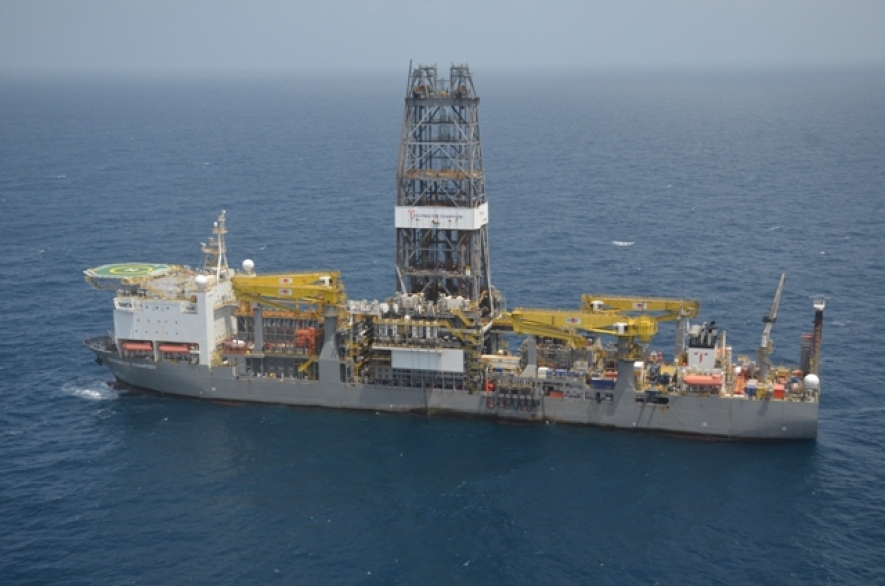By Charles S. Ramson
Attorney at Law
Oil and Gas Consultant
President Granger as the leader of the Government of Guyana is ultimately responsible for re-negotiating the contract with ExxonMobil – a contract which will see Guyana missing out on earning well in excess of US$10B more or over $2 trillion Guyana dollars more in revenue.
This article will be a series of articles which will seek to identify how Guyana has lost out in the re-negotiated contract with ExxonMobil and in so doing argues that this is the consequence of the APNU-AFC government’s myopic determination to “go it alone” by excluding the political opposition from assisting in the development of the oil and gas sector at this critical shaping-stage of infancy.
The contract with Exxon will trap Guyana for decades to come even after the APNU-AFC loses power a la the situation with GT&T’s 40-year monopoly of Guyana’s international voice and data traffic awarded by the PNC in 1991 which has severely restricted the liberalisation of the telecommunication sector in Guyana for decades causing Guyana to have some of the highest telecommunication rates in the region.

In fact, Article 32 of the contract with ExxonMobil which the APNU-AFC government has signed has already trapped Guyana since it states that there can be no re-negotiation of the contract unless ExxonMobil agrees. This, it goes without saying more, is flaw number 1 and will see not only the lost revenue amounting to billions of US dollars from the unfavourable fiscal terms of the contract but the loss of an opportunity for another government to correct the flaws in the now extant contract.
It is important for readers to understand that ExxonMobil is a company and not a charity and the governing principle for any company is to maximise shareholder value. Any deviation from that principle by any officer of a company is a serious dereliction of duty likely to result in termination. This means that ExxonMobil is obligated to seek to obtain the best deal possible for its shareholders all around the world. It is also the job of any officer of ExxonMobil to seek to persuade the people of a nation they contract with that the deal was a “fair deal”. Exxon has essentially acted exactly the way they should act and their shareholders should congratulate their negotiating team because they were able to obtain a pretty good deal on their behalf.
On the other hand, it is the job of government as agents of the people of a country to get the best deal possible on their behalf. Comparative facts on bargaining position evince definitively the government’s profound asymmetry of expertise, information, and financial resources when compared with ExxonMobil.
Before Exxon and Mobil merged, it was originally Standard Oil, founded by John D. Rockefeller in 1870 (the source of wealth of one of the wealthiest families in human history – Rockefellers) while this is Guyana’s first experience with commercial quantities of oil.
ExxonMobil’s revenue for 2016 was almost US$220B while the entire wealth of Guyana for 2016 was US$3.5B making ExxonMobil’s revenue about 65 times larger than Guyana’s entire GDP. This naturally creates what in law and economics is referred to as an “inequality of bargaining power” and will almost never result in Guyana getting a “fair deal” judged from the perspective of the Guyanese people unless oil and gas is treated as an apolitical issue.
The political opposition, the PPP/C, through its leader Bharrat Jagdeo, has wisely affirmed the position that the nascent oil and gas sector needs to be treated as apolitical but APNU-AFC government has paid lip service to this notion of “working together” and the re-negotiation of the contract with Exxon was a perfect perennial example of how the APNU-AFC government’s words do not match its action.
If the APNU-AFC government was serious about treating oil and gas as an apolitical issue then they would have engaged the PPP/C as the political opposition and involved them in the process of re-negotiating the contract with ExxonMobil.
Flaw 2: Long Exploration Period and Minimal Relinquishment Requirement
The Stabroek Block is one of the largest in the world at 6.6 million acres (26,800 square kilometres) yet the contract only requires ExxonMobil to relinquish 20% after the first renewal period (which adds up to 7 years) with a long exploration period (10 years) and a light work commitment (1 well in year 1 to 4, and one additional well in each of the subsequent three-year extension options).
When one considers the size of the Stabroek block, the propitious geology of the Stabroek block combined with the less favourable geology coming from some of the drilling logs from the other blocks, the current value of the quantity already found (around US$220B) with the likelihood of becoming bigger, the fact that Guyana is the second most prospective oil and gas basin in the world, and the possibility of the serious de-emphasised use of oil in the next 30-40 years, Guyana will end up losing billions of US dollars in exploration and production investment, auctioning rounds, signature bonuses, and the high possibility of discovered oil which will never get an opportunity to see the light of day when it becomes uneconomical to produce.
Part 2 will seek to highlight further flaws of the contract with ExxonMobil which could have been avoided had the Granger government not been so myopic in its approach to re-negotiation. There is an old African saying if you want to go fast go alone, but if you want to go far go together.








